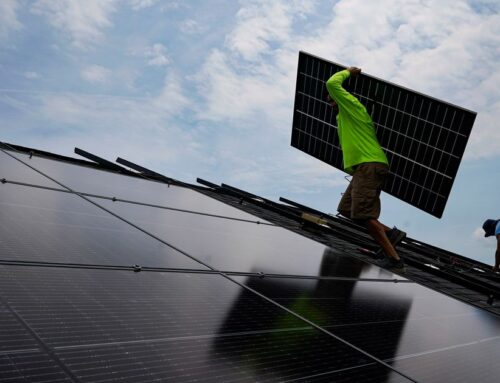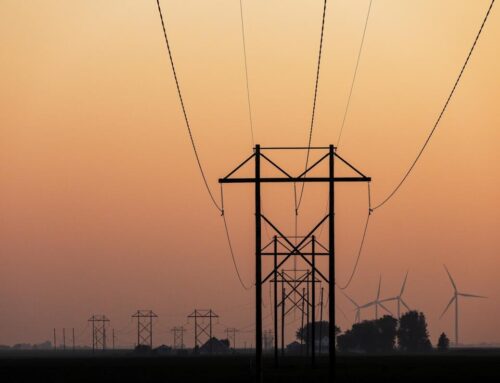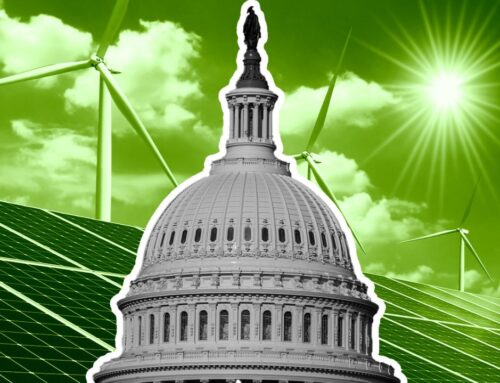How the ‘One Big Beautiful Bill’ Threatens America’s Clean Energy Future
June 17, 2025
On May 22nd, the One Big Beautiful Bill Act (OBBBA), a cornerstone piece of legislation for the Trump Administration, was passed by the House of Representatives with a 215-214-1 vote. A statement by the White House argued that the OBBBA is “a once-in-a-generation opportunity to cement an America-First agenda of prosperity, opportunity, and security into law.” Does this assertion align with the current predicted economic ramifications of the bill? Not exactly.
One of the more significant provisions of the OBBBA involves the accelerated phasing out of tax credits associated with the development of renewable energy technology. These tax credits, established by the Inflation Reduction Act (IRA) under the Biden-Harris administration, have spurred $600 billion in novel private investments along with 406,000 new jobs via the development of 751 clean energy projects between the IRA’s enactment in 2022 and the start of 2025. Currently, the clean electricity production tax credit (PTC) and the clean energy investment tax credit (ITC) are set to be phased out upon a 75% reduction in power sector emissions or in 2032, whichever comes later. As it stands, the OBBBA would prompt these tax credits to begin phasing out in 2028 and discontinue entirely by 2032.
In order to qualify for tax credits under this newly proposed bill, renewable energy projects will need to make significant progress in the 60 days following the bill’s signing and be operational prior to 2032. Consequently, the passing of this legislation will “trigger a scramble to undertake as much as possible in that 60-day window,” after which investment in renewable energy will likely shrink.
Beyond the PTC and ITC, the OBBBA would repeal hydrogen production tax credits after 2025, threatening $1 billion in federal tax revenue and $400 million in state and local tax revenue. This will increase economic pressure on the clean hydrogen industry to move outside of the United States. The Solar Energy Industries Association, following the House’s approval of the bill, released a statement asserting that the bill will threaten nearly 300,000 current and future jobs, 300 factories, and up to $220 billion in potential investment by 2030. Resulting energy shortages could undermine America’s ability to support technological growth, particularly in AI and data storage.
The OBBBA does offer some increased support for clean energy, extending the tax credit cutoff for low-emission transformation fuel production from 2027 to 2031 and establishing novel emissions profiles for fuels derived from animal manure. However, the tax credit applies only to fuel developed from feedstock produced in North America and artificially lowers the measured lifecycle greenhouse gas emissions for select fuels through the exclusion of indirect impacts of increased fuel production.
The Biden-Harris administration’s policies promoted $1 trillion in private investment in clean energy, semiconductors, and advanced manufacturing. Strengthening America’s renewable energy sector with policies that encourage the expansion of relevant technology keeps the nation competitive and promotes economic prosperity, yet the White House has framed Biden’s successes as “climate extremism.” While the current administration has deemed their policy decisions to be in favor of “[unleashing] America’s affordable and reliable energy and natural resources” in order to “restore American prosperity,” perhaps their real motivations lie elsewhere. The $450 million spent by oil and gas companies on Trump’s 2024 election campaign, lobbying, GOP campaigns, and other related expenses raises concerns about possible ulterior motives for the provisions of the OBBBA.
This budget reconciliation bill is now in the hands of the Senate, where it will likely face amendments due to opposition from select Republican senators demanding stricter spending reduction. Trump’s July 4th deadline for the bill’s passage places significant pressure on the GOP to quickly advocate their individual desires for the legislation while accounting for the fact that the bill will need to pass through the House again with its revisions. The OBBBA’s narrow success on May 22nd, combined with recent decreased support for the bill in the House, leaves Congress in a difficult position. It’s clear, however, that the president’s goals for the United States’ energy system remain unmoved, and the House bill offers insight into the administration’s next moves.
Cristian Solano
Kleinman Center Research Assistant
Cristian Solano is a research assistant at the Kleinman Center. He is a junior in the School of Engineering and Applied Science studying Materials Science and Engineering with an Energy and Sustainability Concentration, alongside Economics.
Search
RECENT PRESS RELEASES
Related Post



